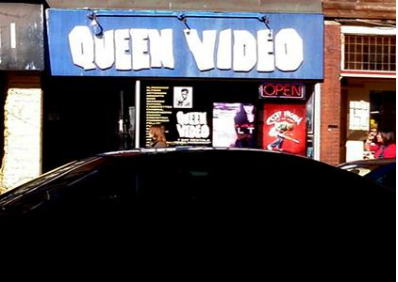by Andrew Einspruch
Filmmaker Andrew Einspruch attended Screen Forever 2013, the conference of Screen Producers Australia, this past year and wrote a series of articles for the event, which he’s kindly allowing us to reprint here. These articles originally appeared in Screen Hub, the daily online newspaper for Australian film and television professionals.
On a sunny day in Melbourne, where the clouds had clearly been swept away, Kim Wright, Film Producer with the Sesame Workshop, talked about the things that make Sesame Street a success. Screen Hub`s Andrew Einspruch reports from Screen Forever, the Screen Producers Australia conference.
Sesame Street is an amazing success story. Now in its 44th season of 26 episodes each (that`s over 1,100 episodes all up), the perennial favourite of the two-to-five set has kept a loyal fan base of children and former children. It has now been around long enough that some of its original viewers are now grandparents, sharing the show with a third generation.
According to Kim Wright, a key part of the show`s magic of the show is keeping it current. Some of that has to do with the writing, some of it the on-air and off-air talent, and some of it is the ability to adjust its curriculum over time.
And, of course, there`s the comedy and the celebrities. If Bert reads a copy of “Fifty Shades of Oatmeal,” or Usher sings the alphabet, it makes parents want to stay tuned, which keeps the kids tuned in as well.
Wright talked about how the show is developed. Each season starts with a curriculum meeting attended by all the show`s producers and writers (there`s a Head Writer and a team of ten additional writers). There, themes and issues that will be highlighted in the season are discussed. For example, they might be emphasising the idea of self-regulation, which includes things like being patient and controlling emotions. From there, the writers go off to work on scripts that address these themes, and the usual iterative process of writing ensues.
The show is structured in blocks, and each episode is made up of a predictable set of different blocks. For example, there will be a Word on the Street block, a number block, a letter block, a musical number from Elmo, a piece from Cookie Monster in a series called Crumby Films (parodies of current movies), and so on. The show is pieced together over months, with different elements being filmed at different times.
Wright also discussed the film commissioning process. They put out a Request for Pitch (RFP) three times a year. These requests ask filmmakers to come up with ideas for short films that can be included in the show. They can be live action, animation or mixed media. They might be 30 seconds long or a two-minute piece for a music video. There will be two or three films in any episode, and they might be about a letter, a number or something to do with the curriculum. Sesame Workshop basically puts it out there, and it is up to producers to come up with an idea that interests them enough to commission it.
 Making a great movie is hard. Marketing a movie might be even harder. There are many good movies every year, but there are far fewer well-marketed ones. The list of people (and studios) who market films successfully year after year is a very elite club.
Making a great movie is hard. Marketing a movie might be even harder. There are many good movies every year, but there are far fewer well-marketed ones. The list of people (and studios) who market films successfully year after year is a very elite club.


 The death of the indie video store is imminent. At least that’s what everyone tells me. Working as a video store clerk in one of a handful of stores (Queen Video) in Toronto is both a blessing and a burden. While the job remains interesting, I’m continually receiving remarks about how great it is that we’re still open. In the wake of the Blockbuster collapse, the independent video store flourished. Business seemed better than usual around late 2011 when the last Blockbusters were closing down in Canada. At that point in time, Netflix had already arrived, and streaming was still popular, but for some reason many people did not want to let go of the video store experience.
The death of the indie video store is imminent. At least that’s what everyone tells me. Working as a video store clerk in one of a handful of stores (Queen Video) in Toronto is both a blessing and a burden. While the job remains interesting, I’m continually receiving remarks about how great it is that we’re still open. In the wake of the Blockbuster collapse, the independent video store flourished. Business seemed better than usual around late 2011 when the last Blockbusters were closing down in Canada. At that point in time, Netflix had already arrived, and streaming was still popular, but for some reason many people did not want to let go of the video store experience.  Strategy is a great personal passion, but something I find few people have an adequate grasp of. While the basic assumption seems to be that advice of all kinds is inherently strategic and of value, it is often anything but. Any given suggestion or piece of advice is only worthwhile inasmuch as it allows the attaining of a goal — without knowing that goal and measuring the success of attempts to attain it, you are not operating strategically: you are merely using tactics of unknown value.
Strategy is a great personal passion, but something I find few people have an adequate grasp of. While the basic assumption seems to be that advice of all kinds is inherently strategic and of value, it is often anything but. Any given suggestion or piece of advice is only worthwhile inasmuch as it allows the attaining of a goal — without knowing that goal and measuring the success of attempts to attain it, you are not operating strategically: you are merely using tactics of unknown value.  As I alluded to in a
As I alluded to in a 
